Become a registered oral surgeon in New Zealand and Australia1
1. Dental Council of New Zealand ( DCNZ ) has accredited DClinDent (Oral Surgery) as a prescribed qualification for registration as a specialist. Current accreditation is valid until 2028 and is subject to review at DCNZ 's discretion.
What is Oral Surgery?
Oral surgery specialists practise in the branch of dentistry concerned with the diagnosis and surgical management of conditions affecting the oral and dentoalveolar tissues.
Specialist oral surgery is undertaken by a dental practitioner who possesses additional postgraduate qualifications and experience recognised by the Dental Council as appropriate for registration.
How long is the course?
3 years full-time
Where is it taught? – campus, placements, etc.
The course is taught at our Dunedin campus.
The DClinDent (Oral Surgery) is a full-time three year residential course combining clinical, didactic and research training and experience in the specialty. It provides a learning platform to prepare the student for advanced level practice in the domain of Oral Surgery in the field of Dentistry. The primary focus of the course is to prepare the Candidate to independently assess, plan and provide Oral Surgical care to individuals and the community. The course will provide a learning framework that will help candidates to advance their academic and clinical skills in Oral Surgery to a level consistent with specialist level practice.
Associate Professor Harsha De Silva coordinates the programme and is assisted by Professor Darryl Tong and Honorary Associate Professor Rohana De Silva as well as other departmental staff in related disciplines. They are supported by all academic staff in ODSS and by the Director, Dental Hospital, Dr Janine Cochrane and Director, Clinical Services, Dunedin Facility, Pip MacDonald. The Oral Surgery postgraduate students also interact with other general dentists on staff and staff specialists in oral medicine, oral pathology, paediatric dentistry, orthodontics, prosthodontics and special needs dentistry, as is appropriate for this speciality. Some of the clinical activities will be undertaken at Dunedin Hospital.
What skills will you develop/learn?
The course combines clinical, didactic and research training, and experience in the speciality. It provides a learning platform to prepare the student for advanced level practice in the domain of Oral Surgery in the field of Dentistry.
The primary focus of the course is to prepare the Candidate to independently assess, plan and provide Oral Surgical care to individuals and the community.
The course will provide a learning framework that will help candidates to advance their academic and clinical skills in Oral Surgery to a level consistent with specialist level practice, subject to accreditation by the appropriate registration authorities.
Specific goals of the programme are to:
- Provide in-depth education and clinical experience in oral surgery and related areas of dentistry
- Provide candidates with a background in clinical disciplines relevant to oral surgery particularly oral pathology, oral medicine, oral radiology and oral and maxillofacial surgery
- Provide appropriate education in areas of general medicine and surgery that will complement the practice of Oral Surgery
- Allow candidates to undertake in-depth studies of topics of relevance to oral surgery
- Provide candidates with education pertaining to research methodology
- Enable candidates to critically review scientific literature
- Enable candidates to become proficient in scientific writing and promote contribution to scientific literature
- Develop and foster the desire towards life-long learning and professionalism
Teaching is evidence-based and will emphasise the integration of current scientific advances into the practice of oral surgery. Seminars, assignments, case presentations, journal clubs, problem-based learning and supervised clinical practice will be used for the delivery of teaching.
After course completion. What are you now eligible to be/do?
After successfully completion of the course, you are eligible to apply for registration as a specialist in oral surgery in New Zealand and Australia.
Applicants will need to first complete registration with DCNZ before applying through Trans-Tasman Mutual Recognition for specialist registration in Australia.
Student experiences
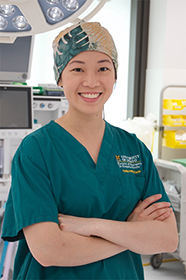 Adelyn Lau
Adelyn Lau
BDS DClinDent (Oral Surgery) graduate
The Doctor of Clinical Dentistry in Oral Surgery at the Faculty of Dentistry, University of Otago is a rigorous training program that well-equips its trainees for the assessment and management of dentoalveolar surgery. There is also a strong emphasis on the integration between oral surgery, oral medicine and oral pathology, which exposes and trains us to treat patients with a myriad of clinical presentations. The program provides a unique opportunity to be involved in the hospital accident and emergency team where we provide on-call care for trauma patients and patients with severe head and neck infections. It has taught me to manage patients and people in highly stressful situations, and importantly, that there is beauty in the fragility and power of the human spirit. The one-on-one hands-on surgical training with the consultants is invaluable. They are passionate teachers and mentors who patiently and graciously impart years of knowledge and experience. The research component of the program was a challenging but exciting part of the journey. There was sufficient space for independent thinking and problem-solving, but also sufficient resources and support from the Sir John Walsh Research Institute, Graduate Research School, and the Centre for Biostatistics. The research process develops one's critical thinking skills, sharpens the way we analyse literature, and hones our communication skills. All in all, the training that I have received at Otago has equipped me with the clinical knowledge and skills needed to provide quality healthcare to patients in the community.
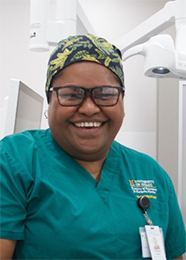 Oripa Waqa
Oripa Waqa
DClinDent (Oral Surgery) – International graduate from Fiji
I came from Fiji to the University of Otago to undertake the Doctorate of Clinical Dentistry programme, specialising in Oral Surgery through the New Zealand MFAT scholarship. This program provided me the training platform for the management of oral and maxillofacial traumas and pathologies. The support system and the comradeship that was accorded to me far exceeded my expectations. The mentorship, the surgical guidance and the vast range of cases that I was expected to get my hands into during the training has equipped me with the confidence to go out and be able to appropriately plan and manage cases in my specialised field back home in Fiji.
I am thankful that I trained under the guidance of three Oral and Maxillofacial surgeons whom one could only aspire to learn under. The push and the shove towards the refining of surgical and thinking skills is greatly encouraged and supported here in the programme. The research component of the programme was a very eye opening experience for me, testing my feet into what was a totally new experience and uncharted territories made me think that I needed to keep swimming to keep my head above waters; but I take my hat off to my research supervisors for the guidance and encouragement in order to be able to successfully complete the research aspect of my programme. Having to do research in the field of immunohistochemistry was a challenge that has enabled me to better understand the intricate pathophysiological processes involved in oral-maxillofacial pathology. I would not trade the experience of this training journey for any other.
The Department of Oral Diagnostic and Surgical Sciences
Information and contact details for the Department of Oral Diagnostic and Surgical Sciences
Staff expertise
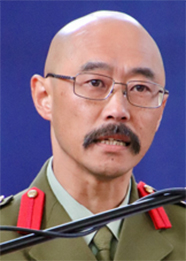 Professor Darryl Tong
Professor Darryl Tong
BDS MB ChB MSD PhD PGDipSEM FFDRCSI FDSRCS FACOMS FACS FICD
Darryl is the Professor of Oral and Maxillofacial Surgery and Head of the Department of Oral Diagnostic and Surgical Sciences. He is a consultant oral and maxillofacial surgeon at the Southern District Health Board. He is active in teaching and research with a wide variety of interests, including ballistic trauma, sports medicine, concussion and forensic biology. He has further roles in the NZ Defence Force and St John's Ambulance.
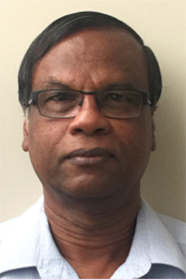 Honorary Associate Professor Rohana De Silva
Honorary Associate Professor Rohana De Silva
BDS (S Lanka) FDSRCPSGlas FFDRCSI FDSRCS
Rohana is an Honorary Associate Professor in the Department of Oral Diagnostic and Surgical Sciences. He is a registered specialist in Oral and Maxillofacial Surgery in New Zealand and a consultant Oral and Maxillofacial Surgeon to the Southern District Health Board. His research interests include: Management of pain and other complications associated with surgical removal of wisdom teeth and to evaluate the metabolism of some analgesics in the body and use of dental implants in the rehabilitation of the edentulous patients. He is currently the invited external examiner for the final examination of the DClinDent (Oral Surgery) conducted by the University of Sydney and the Master of Oral Surgery programme conducted by the University of Fiji.
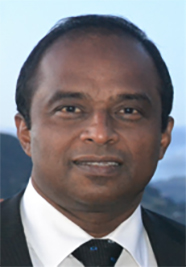 Associate Professor Harsha De Silva – Head of Discipline (Oral Surgery)
Associate Professor Harsha De Silva – Head of Discipline (Oral Surgery)
BDS (S Lanka) MS (Colombo) DClinDent (Otago) FDSRCS FFDRCS
Harsha is a senior lecturer in the Department of Oral Diagnostic and Surgical Sciences. He is a registered specialist in Oral Surgery and also serves as a Joint Clinical Consultant in Oral and Maxillofacial Surgery for the Southern District Health Board. He graduated in dentistry in Sri Lanka and subsequently completed his postgraduate training in Oral and Maxillofacial Surgery in Sri Lanka and in the United Kingdom. Prior to joining the University of Otago in 2008, he was a clinical consultant to the Ministry of Health – Sri Lanka, Sri Lanka Air Force and to the Medical Services of the Royal Army of Oman, and also chaired the Board of Study in Dental Surgery of the Postgraduate Institute of Medicine in Sri Lanka. His research interests extend into oral cancer and clinicopathological behaviour of potentially malignant oral disorders.
Course content: Year 1*
CLDN 910 Clinical Research
- Biostatistics, research methods and epidemiology
- Microbiology and immunology
- Biology of the oral cavity
- Clinical anatomy
- Research protocol
CLDN 920 Clinical Practice
- Investigations and diagnostic principles (oral radiology and oral pathology)
- Dental implantology
- Clinical practice-oral surgery 1
* B+ (75%) or higher is the grade required to achieve a pass and to continue to the second year of the course. This is derived from the overall performance in all assessment tasks.
Course content: Year 2
CLDN 9F Thesis Research, Clinical Research and Clinical Practice 2
- Medicine for the dental specialist
- Pain control, pharmacology and therapeutics
- Oral medicine
- Clinical practice-oral surgery 2
- Research data collection
Course content: Year 3
CLDN 9F Thesis Research, Clinical Research and Clinical Practice 3
- Clinical practice-oral surgery 3
- Research results analysis and thesis preparation
Entry requirements
Prospective applicants should fulfil the criteria for study at the University of Otago as listed in the current University Calendar. They should hold a primary dental qualification that is acceptable to the University.
It is an advantage if the applicant holds a current annual practising certificate with the Dental Council of New Zealand.
Applicants should be able to demonstrate a strong interest in Oral Surgery.
Applicants are deemed to have worked at some point in time, for a hospital-based dental department or in a dental practice with an interest in providing oral surgery services to patients.
All applicants should be at a minimum two years post-graduation of their primary dental qualification.
How to apply
Applications close on 31 May of the year prior to enrolment.